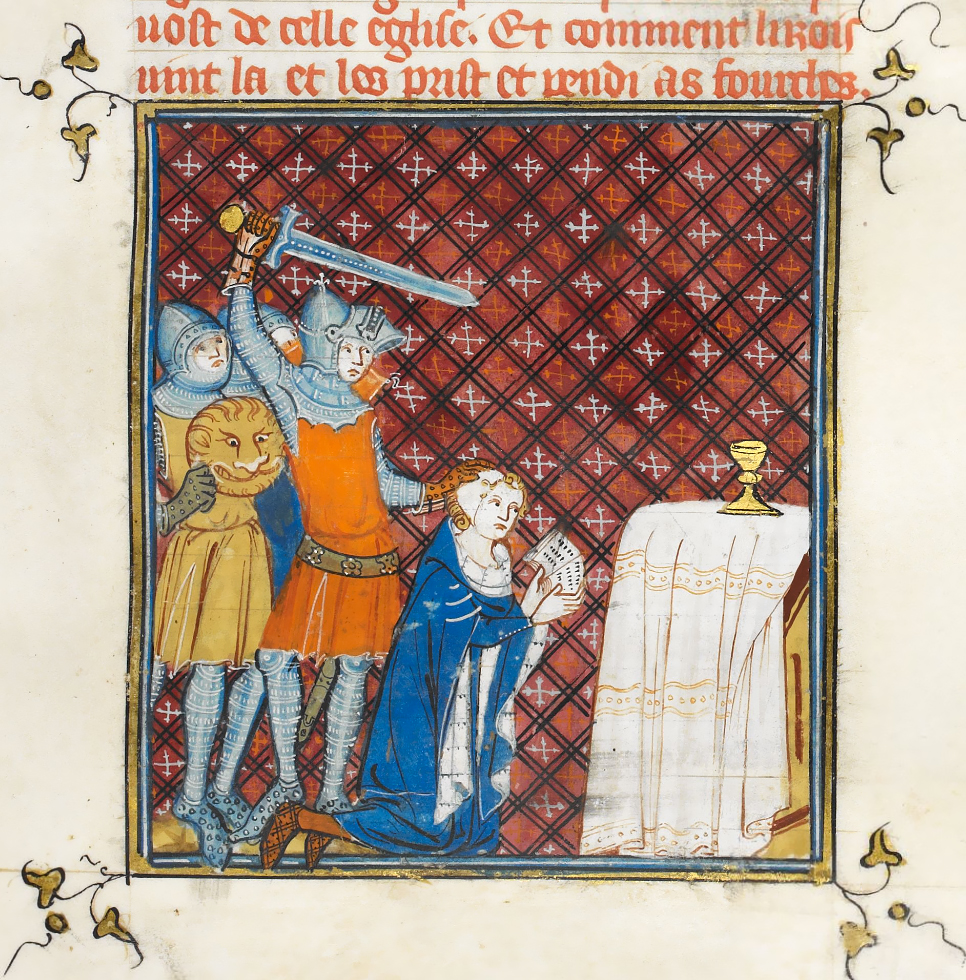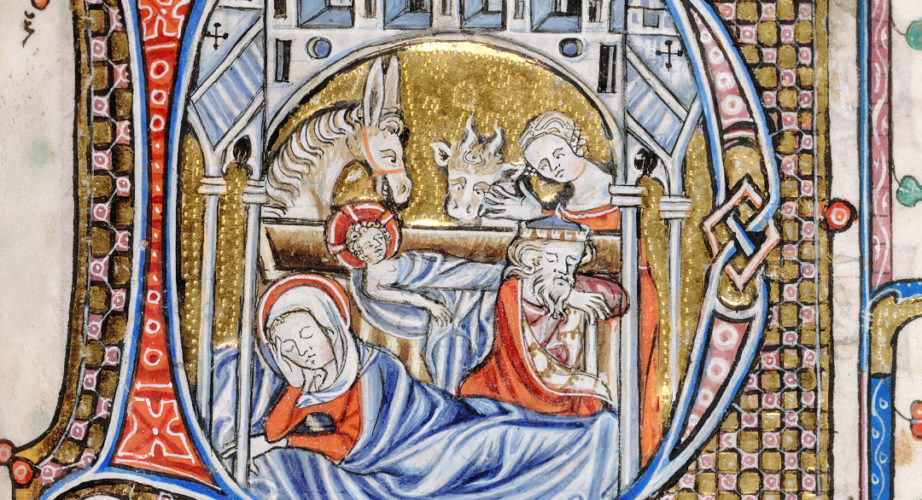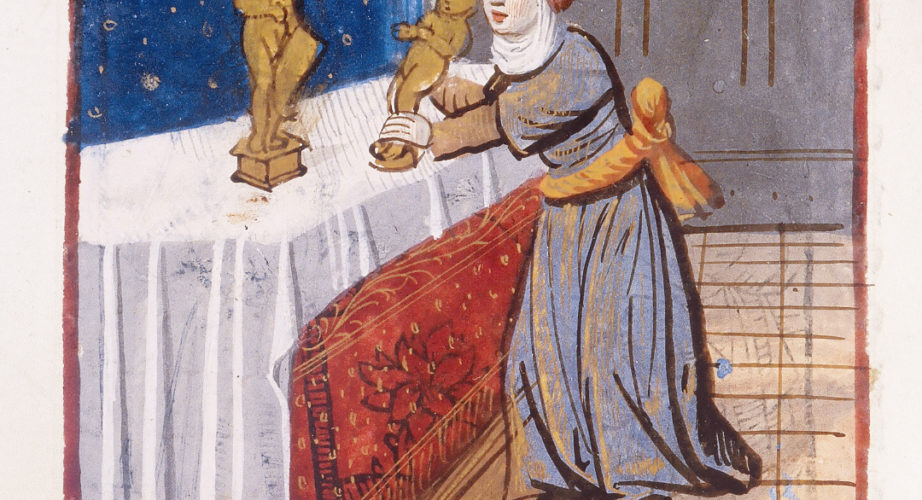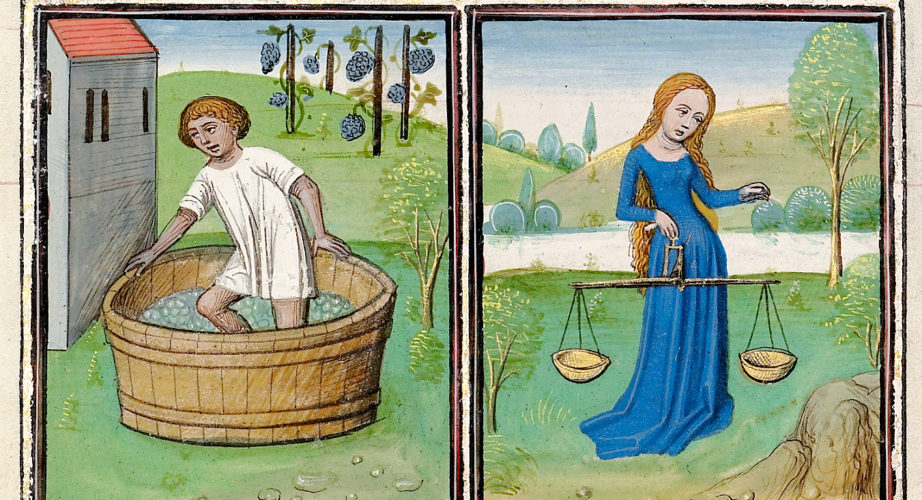CHARLES THE GOOD
 Today, March 2, marks the anniversary of the assassination of Charles the Good, who was Count of Flanders from 1119 until the year of his death.
The only male son of King Canute IV, later to be consecrated as Saint Canute, Charles lost his father after his murder in 1086, when the child was only two years old. His mother, Adela of Flanders, fled back to her motherland at the court of her father, Robert I, taking young Charles with her. The boy thus grew up under his grandfather and, later on, under his uncle Robert II, at the death of whom he became the advisor of the new Count, his cousin Baldwin VII. Lastly, Charles succeeded to the childless Baldwin in 1119.
Charles' reign was characterized by an atmosphere of peace and justice for the people, for whom the Count made several active efforts. Generous to the weak and the poor, Charles was often distributing food and clothing to his people; in addition to this, many of his efforts regarded the fight against usury and price gouging. His policy even led to the expulsion of all Jews from Flanders, whose loaning habits were believed to be adding additional suffering to a people already afflicted by famine. Charles' administration soon angered the Erembalds, an influential noble family involved in shady affairs that included accumulating huge amounts of wheat in order to resell them to the poor at an even higher price. The Erembalds thus decided for a conspiracy meant to dethrone and kill Charles.
On March 2, 1127, as Charles was praying in the church of St. Donatian in Bruges, a group of conspirators reached him and slew him. The conspiracy, however, proved to be a double-edged sword to the Erembald family; as the Count had been a very well-beloved ruler, the people rose in a massive public outrage that led to the execution of the assassins and the arrest, torture, and ban of the Erembalds from the list of Flemish nobles.
The fame of Charles the Good made so that Pope Leo III officially beatified him in 1882.
"Murder of Charles the Good", illumination from the manuscript "Les Grandes Chroniques de France", ms. Royal 16 G VI, f. 306r, 1332-1350, British Library, London.
Today, March 2, marks the anniversary of the assassination of Charles the Good, who was Count of Flanders from 1119 until the year of his death.
The only male son of King Canute IV, later to be consecrated as Saint Canute, Charles lost his father after his murder in 1086, when the child was only two years old. His mother, Adela of Flanders, fled back to her motherland at the court of her father, Robert I, taking young Charles with her. The boy thus grew up under his grandfather and, later on, under his uncle Robert II, at the death of whom he became the advisor of the new Count, his cousin Baldwin VII. Lastly, Charles succeeded to the childless Baldwin in 1119.
Charles' reign was characterized by an atmosphere of peace and justice for the people, for whom the Count made several active efforts. Generous to the weak and the poor, Charles was often distributing food and clothing to his people; in addition to this, many of his efforts regarded the fight against usury and price gouging. His policy even led to the expulsion of all Jews from Flanders, whose loaning habits were believed to be adding additional suffering to a people already afflicted by famine. Charles' administration soon angered the Erembalds, an influential noble family involved in shady affairs that included accumulating huge amounts of wheat in order to resell them to the poor at an even higher price. The Erembalds thus decided for a conspiracy meant to dethrone and kill Charles.
On March 2, 1127, as Charles was praying in the church of St. Donatian in Bruges, a group of conspirators reached him and slew him. The conspiracy, however, proved to be a double-edged sword to the Erembald family; as the Count had been a very well-beloved ruler, the people rose in a massive public outrage that led to the execution of the assassins and the arrest, torture, and ban of the Erembalds from the list of Flemish nobles.
The fame of Charles the Good made so that Pope Leo III officially beatified him in 1882.
"Murder of Charles the Good", illumination from the manuscript "Les Grandes Chroniques de France", ms. Royal 16 G VI, f. 306r, 1332-1350, British Library, London.
Post consigliati
Happy Holidays from Folia Magazine!
Two sleepy parents and a very awake Child... in a way, this Nativity…
Rachel
On September 30, the Church celebrates the feast day of St. Rachel, Jacob's…
Autumn
Da oggi (precisamente alle 8.50 italiane!), con l'ingresso del Sole nella costellazione della…


